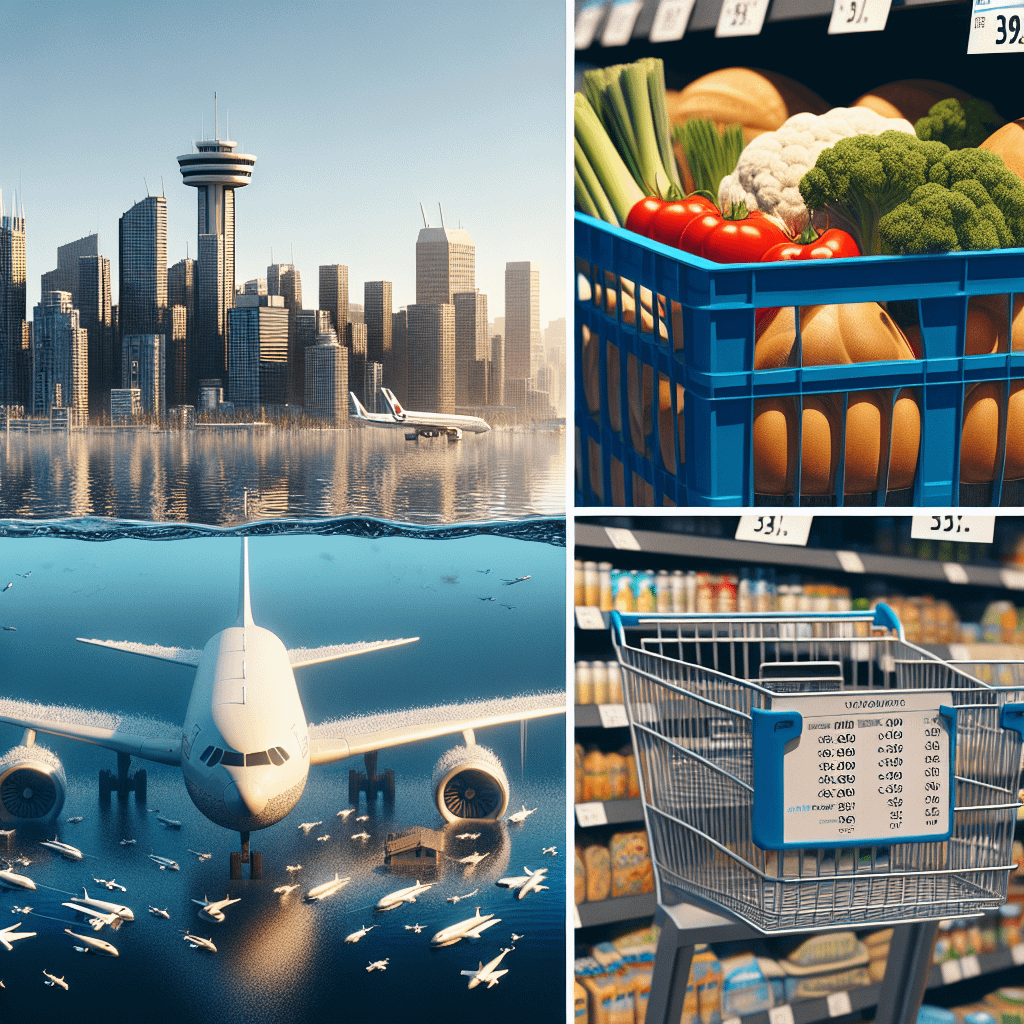Here’s all the latest local and international news concerning climate change for the week of Dec. 2 to Dec. 8, 2024.Published Dec 07, 2024 • 13 minute readA new Canadian senate report says Vancouver International Airport is at risk of flooding due to climate change. Photo by Jason Payne /PNGHere’s the latest news concerning climate change and biodiversity loss, from the steps leaders are taking to address the problems to all the latest science.Article contentArticle contentIn climate news this week:• Rising sea levels could put Vancouver’s airport underwater• Conserving just five per cent of watersheds can protect cities from floods: UBC study• Canadians to spend $801 more on food in 2025 as climate, Trump affect prices: reportAdvertisement 2Story continues belowThis advertisement has not loaded yet, but your article continues below. View more offersArticle contentHuman activities like burning fossil fuels and farming livestock are the main drivers of climate change, according to the UN’s Intergovernmental Panel on Climate Change. This causes heat-trapping greenhouse gas levels in Earth’s atmosphere, increasing the planet’s surface temperature.The panel, which is made up of scientists from around the world, has warned for decades that wildfires and severe weather, such as B.C.’s deadly heat dome and catastrophic flooding in 2021, would become more frequent and more intense because of the climate emergency. It has issued a “code red” for humanity and warns the window to limit warming to 1.5 C above pre-industrial times is closing.According to NASA climate scientists, human activities have raised the atmosphere’s carbon dioxide content by 50 per cent in less than 200 years, and “there is unequivocal evidence that Earth is warming at an unprecedented rate.”Check back every Saturday for more climate and environmental news or sign up for our Climate Connected newsletter HERE.Climate change quick facts:• The Earth is now about 1.3 C warmer than it was in the 1800s.• 2023 was hottest on record globally, beating the last record in 2016. However scientists say 2024 will likely beat the 2023 record.• Human activities have raised atmospheric concentrations of CO2 by nearly 49 per cent above pre-industrial levels starting in 1850.• The world is not on track to meet the Paris Agreement target to keep global temperature from exceeding 1.5 C above pre-industrial levels, the upper limit to avoid the worst fallout from climate change including sea level rise, and more intense drought, heat waves and wildfires.• On the current path of carbon dioxide emissions, the temperature could increase by as much 3.6 C this century, according to the IPCC.• In April, 2022 greenhouse gas concentrations reached record new highs and show no sign of slowing.• Emissions must drop 7.6 per cent per year from 2020 to 2030 to keep temperatures from exceeding 1.5 C and 2.7 per cent per year to stay below 2 C.• 97 per cent of climate sci

